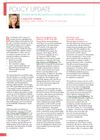6 citations,
March 2010 in “Journal of plastic, reconstructive & aesthetic surgery” Laser treatment can fix skin color issues after syndactyly surgery.
 3 citations,
April 2022 in “Clinical, Cosmetic and Investigational Dermatology”
3 citations,
April 2022 in “Clinical, Cosmetic and Investigational Dermatology” Different methods, including stress management, healthy diet, supplements, and treatments like minoxidil, can help hair grow back after COVID-19 related hair loss.
 2 citations,
November 2011 in “Journal of Infection”
2 citations,
November 2011 in “Journal of Infection” A woman with asthma improved from a severe fungal infection after treatment change, and most HIV-positive women in a UK study had low immune cell counts but were responding well to treatment.
 1 citations,
September 2023 in “Curēus”
1 citations,
September 2023 in “Curēus” Using a laser to remove hair in the urethra after hypospadias repair is effective and minimally invasive.
 1 citations,
January 2023 in “Revista da Associação Médica Brasileira”
1 citations,
January 2023 in “Revista da Associação Médica Brasileira” Experts agree on the need for standardized definitions and education for post-COVID-19 conditions.
1 citations,
January 2023 in “OALib” Fatigue, loss of taste and smell, and cough are common long-term symptoms after COVID-19.
 1 citations,
August 2022 in “JAMMI”
1 citations,
August 2022 in “JAMMI” Some people still have COVID-19 symptoms after 90 days, especially older patients and those with severe initial symptoms, but most return to normal.
 1 citations,
August 2022 in “JAAD Case Reports”
1 citations,
August 2022 in “JAAD Case Reports” A woman's complete hair loss condition improved after recovering from COVID-19.
 1 citations,
March 2007 in “Hair transplant forum international”
1 citations,
March 2007 in “Hair transplant forum international” Use hair-styling methods to hide thinning hair after surgery in women.
 September 2024 in “Journal of Bioscience and Applied Research/Journal of Bioscience and Applied Research ”
September 2024 in “Journal of Bioscience and Applied Research/Journal of Bioscience and Applied Research ” COVID-19 can cause hair loss due to stress, with inflammation markers like D-dimer levels playing a role.
December 2023 in “International journal of research publications” Herbal medicine and nutraceuticals may help treat Post COVID-19 Syndrome, but more research is needed.
 October 2023 in “Dermatology practical & conceptual”
October 2023 in “Dermatology practical & conceptual” Many patients experienced hair loss after COVID-19, with women affected more, starting on average 49 days post-infection.
 July 2023 in “Skin health and disease”
July 2023 in “Skin health and disease” Most UK survey participants had negative side effects from botulinum toxin injections, with many not fully recovering physically, emotionally, or financially.
May 2023 in “Clinical and translational neuroscience” Tailored neurorehabilitation programs improve life quality for post-COVID-19 patients.
 April 2023 in “International Journal of Community Medicine and Public Health”
April 2023 in “International Journal of Community Medicine and Public Health” Older people with severe COVID-19, especially those with certain health conditions, are more likely to experience post-COVID syndrome.

Additive markers are most common and crucial for text coherence.
 February 2023 in “Journal of clinical medicine research”
February 2023 in “Journal of clinical medicine research” Zinc acetate hydrate may help reduce fatigue and hair loss in post-COVID-19 patients.
 January 2023 in “Research Square (Research Square)”
January 2023 in “Research Square (Research Square)” Many patients experienced severe hair loss after COVID-19, especially older adults and women.
 January 2023 in “Indian dermatology online journal”
January 2023 in “Indian dermatology online journal” Skin problems after waxing led to a sarcoidosis diagnosis.
 October 2022 in “Respiratory Medicine”
October 2022 in “Respiratory Medicine” Patients treated in Respiratory Intensive Care Units for COVID-19 are more likely to get mood disorders than those in other care settings.
April 2022 in “DOAJ (DOAJ: Directory of Open Access Journals)” Effective hair regrowth after COVID-19 involves psychological support, good nutrition, and hair growth treatments.
PRP treatment helps reduce hair loss in post-COVID-19 patients.
May 2015 in “Cancer research” After chemotherapy for early breast cancer, 33.4% of patients had long-term significant hair loss, with some hair regrowth over time, but treatments for hair loss were largely ineffective.
 May 2015 in “Primary Dental Journal”
May 2015 in “Primary Dental Journal” The conclusion is that improved training and oversight for cosmetic procedures are recommended to better protect patients.
 80 citations,
February 2021 in “Cureus”
80 citations,
February 2021 in “Cureus” Many COVID-19 survivors continue to experience symptoms like fatigue and concentration problems after recovery, possibly needing rehabilitation.
 73 citations,
July 2013 in “The Journal of Sexual Medicine”
73 citations,
July 2013 in “The Journal of Sexual Medicine” Finasteride use changes brain chemicals, causing lasting sexual issues and anxiety/depression.
 67 citations,
December 2009 in “Stem Cells”
67 citations,
December 2009 in “Stem Cells” β-Catenin signaling is involved in brain cell growth after injury and could be a therapy target.
62 citations,
June 2011 in “Lupus” Gender affects the symptoms and severity of systemic lupus erythematosus.
 36 citations,
January 2018 in “Burns & Trauma”
36 citations,
January 2018 in “Burns & Trauma” NSAIDs may not affect soft tissue healing but should be used carefully for bone fractures and more research is needed to understand sex differences in response.
 15 citations,
June 2015 in “Human Cell”
15 citations,
June 2015 in “Human Cell” Spheroid culture in agarose dishes improves survival and nerve cell growth in thawed human fat-derived stem cells.





















